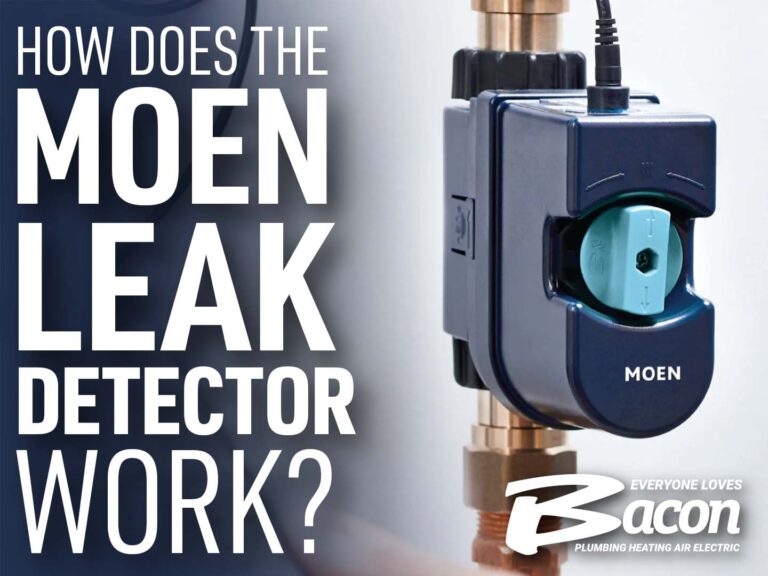Older homes in Texas, particularly in the DFW and Greater Houston areas, have a special character that’s hard to replicate. But with age comes the potential for plumbing issues. Think rusted pipes, outdated fixtures, and other surprises.
Identifying these problems is so important. Especially if you’re considering purchasing an older home. It helps maintain your home’s plumbing system, avoids costly repairs down the line, and protects your family’s health.
We’ll explore some common issues, like corroded pipes and tree roots that somehow manage to sneak into sewer lines (it’s more common than you think!). You’ll learn about the risks and find practical solutions to keep your plumbing running smoothly.
Key Takeaways
- Older homes in Texas often face plumbing issues due to aging pipes or outdated systems
- Older homes often face plumbing issues such as rusty pipes, lead contamination, and root invasions
- Regular check-ups from a licensed professional can save you from expensive repairs
Do old houses have plumbing issues?
Older homes can be prone to plumbing problems due to aging pipes and outdated systems. Pipes made from materials like galvanized steel can corrode over time, causing leaks and other issues. And, if you have old sewer lines, tree roots can even invade them, causing more problems.
Regular inspections and updates can help prevent major plumbing disasters. But what exactly should you be on the lookout for? Here are some common plumbing issues to watch out for in your older home:
Corroded Pipes

If you live in an older home, chances are your pipes are at risk of corrosion. These pipes were made with materials that wear out or react with water over time. Materials like galvanized steel, cast iron, and copper can corrode. This can happen because they’ve been carrying water for many years.
And if you’re in Texas, especially in the Dallas-Fort Worth or Houston areas, the mineral-rich water can accelerate this process. Hard water, which is rich in minerals like calcium and magnesium, can leave behind deposits inside your pipes. These mineral deposits build up over time, creating rough surfaces that make it easier for corrosion to take hold.
How to Fix Corroded Pipes:
- Consider a repipe with durable materials like PEX or copper to replace corroded pipes.
- Schedule regular inspections to catch early signs of corrosion.
- Install a water softener to reduce the mineral content in your water.
Pipe Contamination Issues from Older Pipes
Older homes built before the 1980s often face plumbing challenges due to outdated materials like galvanized steel and lead. Galvanized pipes, common before the 1960s, lose their protective zinc coating over time, leading to rust, reduced water pressure, leaks, and contamination. Homes with lead pipes face serious health risks, as lead can seep into drinking water, causing brain damage and developmental delays, especially in children and pregnant women.
How to Address Old, Contaminated Pipes:
- Upgrade Your Pipes: Replace old galvanized and lead pipes with durable materials like copper or PEX.
- Get Your Water Tested: Regularly test your water to check for rust, lead, and other contaminants.
- Consult a Professional: Have a trusted plumber assess your pipes and recommend necessary replacements.
- Use a Water Filter: Install certified filters to reduce lead levels and other contaminants in your water.
- Flush Your Pipes: Run cold water for a few minutes before using it for drinking or cooking to clear out any potential contaminants.
Sewer Line Issues

As an older home owner, you might be at risk for sewer line issues. Here’s why: older homes often have sewer lines made from clay or cast iron, which can crack and break down over time.
And if you live in the Dallas-Fort Worth or Houston areas, you’re facing an extra challenge. Our region’s clay soil is notorious for shrinking and swelling with changing moisture levels, causing significant ground movement over time. This means that when it rains, the soil absorbs water and swells, putting pressure on pipes and causing them to sag. And in dry periods, the soil contracts, leading to even more shifting and sagging.
Common Problems with Sewer Lines:
- Pipe Bellies: Imagine a sagging section of sewer pipe where water and waste collect, causing blockages and leaks. Yikes!
- Pipe Sags: Similar to pipe bellies, but with a section of pipe sinking due to ground movement or improper installation. Gross!
- Cracked Pipes: Shifting soil can cause older pipes to crack, leading to leaks and more damage.
- No Slope or Negative Slope: If your sewer line doesn’t have a consistent downward slope, waste can flow back toward your house. Not good!
How to Address Sewer Line Issues:
- Regular Inspections: Get a professional plumber to check your sewer lines regularly. They can spot problems early using a sewer camera.
- Trenchless Repair Methods: Consider no-dig, trenchless sewer repairs like pipe lining or pipe bursting to fix damaged sewer lines without tearing up your yard.
- Re-Piping: If your sewer line has developed bellies or sags, a plumber might recommend re-piping the affected section to restore the proper slope.
- Soil Stabilization: Take steps to stabilize the soil around your home to prevent shifting that can cause sewer line issues. Proper drainage and soil moisture management can help.
Root Intrusion
Remember how we mentioned that Dallas and Houston’s clay soil and warm climate can cause weak points in your sewer lines? Well, tree roots are like opportunistic invaders, seeking out those weak points for water. Once they significantly infiltrate your sewer line, backups and leaks are almost inevitable.
How to Manage Root Intrusion:
- Regular Root Removal: Stay ahead of blockages by scheduling regular root removal services. Pros can use specialized gear to cut and remove roots from your sewer lines.
- Pipe Lining: Use pipe lining solutions to reinforce existing pipes and prevent root intrusion. This trenchless repair method involves inserting a flexible, resin-coated tube into the damaged pipe and inflating it, creating a new pipe within the old one. This method is less invasive and more cost-effective than traditional pipe replacement.
- Avoid Planting Near Sewer Lines: Be mindful of where you plant trees and shrubs. Keep them at least 20 feet away from sewer lines to reduce the risk of root intrusion. Trust us, the future headache (and costly repairs) is not worth the trouble.
Outdated Fixtures
Living in an older home in the Dallas-Fort Worth or Houston area means you’re likely dealing with outdated plumbing fixtures. We’re talking old faucets, toilets from another era, shower heads that are more trickle than torrent, worn-out sinks, and bathtubs that have seen better days. These relics might be charming, but they’re also wasting water, hiking up your utility bills, and needing more maintenance than they’re worth.
How to Update Fixtures:
- Upgrade Fixtures: Replace old fixtures with modern, water-efficient ones.
- Regular Checks: Inspect fixtures regularly for leaks and wear.
- Professional Installation: Ensure fixtures are installed correctly by a professional.
Improper Installation from Previous Repairs
If your home has been around for a while, it’s likely had its fair share of plumbing repairs. Over time, these repairs might not have kept pace with changing plumbing codes and standards. This can lead to a host of problems—think recurring clogs, wasted water, and even safety risks. That’s why it’s so important to make sure any plumbing work is done to code. This helps keep your plumbing system running smoothly, efficiently, and safely.
How to Correct Improper Installations:
- Professional Assessment: Have a licensed plumber inspect previous repairs for compliance with current codes.
- Update to Code: Correct any improper installations to ensure they meet current standards.
- Document Repairs: Keep detailed records of all repairs and installations for future reference.
Plumbing Issues in Older Homes? We’ve Got the Fix
At Bacon Plumbing Heating Air Electric, we understand the unique challenges faced by older Texas homes. Our licensed plumbers are based in Rockwall, Plano (serving DFW) and Spring (serving the greater Houston area), ready to provide professional plumbing services. If you own an older home, don’t let plumbing issues disrupt your comfort—schedule a service with us today by calling (972) 703-2497.



